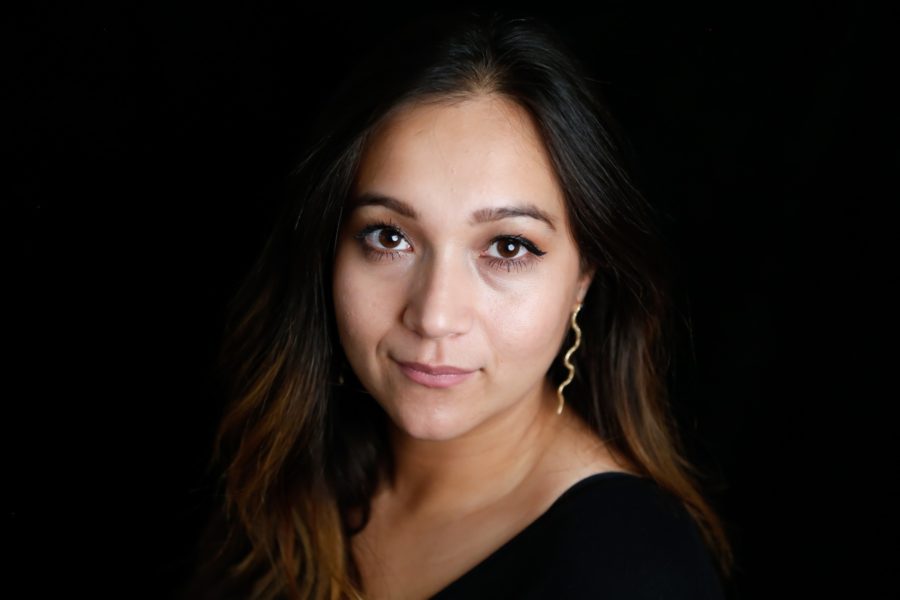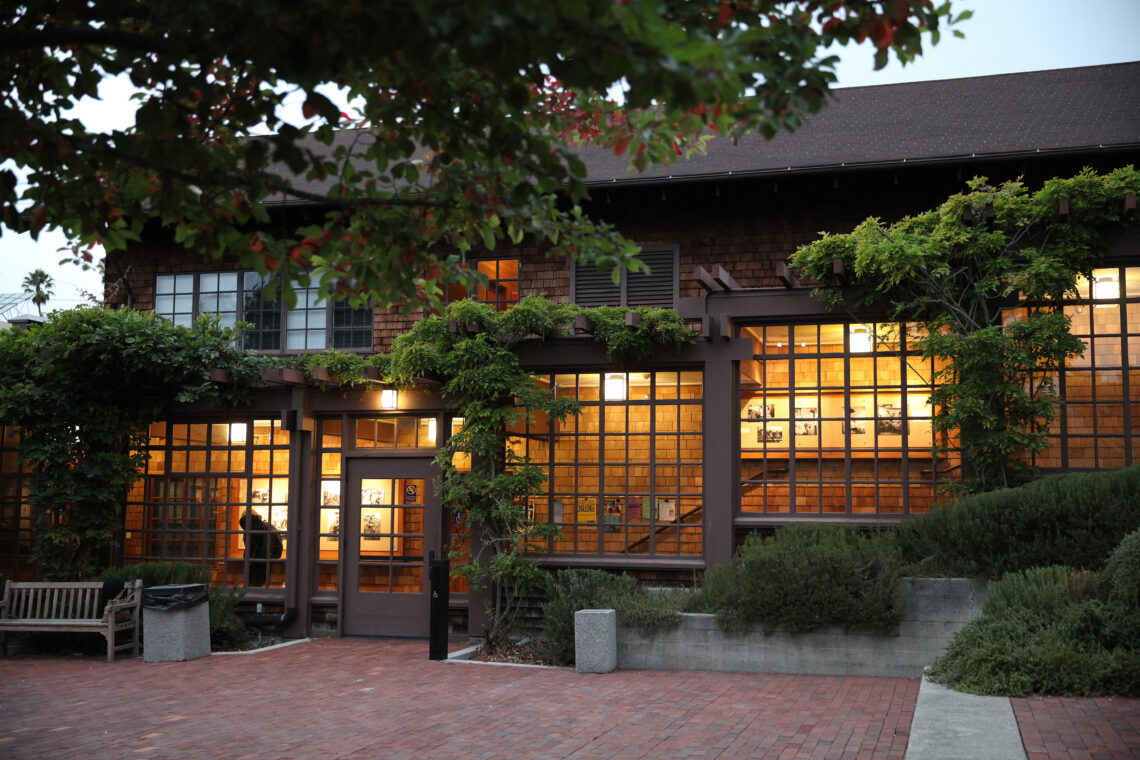
Photo: Lisa Hornak (’19)
Bo Kovitz, a second-year graduate student in filmmaking, has been named this year’s Marlon T. Riggs Fellow.
Named for the late J-School alumnus and professor Marlon T. Riggs (’81), the $10,000 fellowship was created in 2014 through the efforts of Vivian Kleiman, Riggs’ former collaborator. Funding was provided by Riggs’ Oakland-based production company Signifyin’ Works, the Ford Foundation, and The Filmmaker Fund. The fellowships are awarded annually to a promising student of documentary by the School’s filmmaking faculty.
“This fellowship honors, in my opinion, one of the great documentary filmmakers,” Kovitz said. “Being a young female director, and one who grew up at the margins in certain ways, I’m particularly moved to receive an award named for a highly prolific gay, male African American filmmaker. My identity, my world-view and my passion for filmmaking is defined so much by growing up in a very confusing environment: I was raised by a strict, traditional Thai immigrant mother and a free-spirited, child of the Sixties dad who was the grandchild of Eastern European Jewish immigrants.”
Kovitz’s journalism dates back to her undergraduate days at UC Berkeley. A political science major, she worked with The Daily Californian as a reporter on the Berkeley city government beat, and was soon noticed by Prof. Lowell Bergman of the Investigative Reporting Program— which shares office space with the student paper—who invited her to take a graduate-level seminar at the School. Kovitz soon teamed up on an investigation revealing how anti-abortion activists used misleadingly edited, undercover videos of Planned Parenthood to further a political cause. The story was published in the Los Angeles Times.
“It was the first time I went wild with spreadsheets and folders within folders within folders of public records, memos and timelines. Through that story, Lowell taught me to always peel back the layers of reporting. Because there’s always more: there’s more to know, there’s someone else to talk to, and then to report against your sources. He’s also the one who taught me not to fill in silences when interviewing people.”
As an undergraduate at Berkeley, Kovitz also advised incarcerated writers at San Quentin State Prison through Prof. Bill Drummond’s San Quentin Editing class. “By the time I started graduate school, I had already been an advisor for a few years. By then, I had helped shepherd the first edition of the newsroom’s magazine Wall City. Now, I’m working with the newsroom’s other expansions: a new emphasis on video reporting, and the pre-production of its first documentary film on prison journalism,” she said.
Kovitz said she owes her colleagues at San Quentin many of her reporting values, specifically the commitment to tell nuanced stories about those who are often seen as helpless but are real people trapped in society’s deepest power structures.
After she graduated Kovitz was hired as an associate producer on a documentary film called “The Pushouts.” This was her first real-world experience within the industry, and inspired her drive to become a filmmaker too. “I came to graduate school to make that happen, to finally get a camera in my hands and shape my vision and my style, to finally be a director. As cheesy as it sounds, it’s sort of felt like my dreams are coming true,” she said.
Before returning to the J-School for her second and final year, Kovitz lived in New York as a news intern at NBC News through the Asian American Journalists’ Association (AAJA).
Kovitz attributes much of her growth to the instruction she has received at North Gate from women filmmakers such as Carrie Lozano (‘05) and Dawn Porter. “For female filmmakers like me, their instruction makes all the difference. It means I am more comfortable in my own skin, knowing that I have the support of established women in the field who are helping me realize the potential within. I’m so thankful that they are leading this program,” she added.
Kovitz explained that one of the earliest lessons she learned was from producer and alum, Daffodil Altan (‘04), which was to never apologize. “Because women too often apologize in their work. It reinforces the gender imbalance in the profession, and public interest work is strongest when there are diverse perspectives driving the reporting,” she said.
Carrie Lozano, director at the IDA Enterprise Documentary Fund and a lecturer at the School, shared some thoughts as well, on the scholarship, Kovitz and the Class of 2019.
“With a significant demand for visual storytelling, there’s enormous opportunity for multi-skilled documentary filmmakers,” Lozano said. “And more women than ever are directors and cinematographers. I’m eager for Bo and the Class of 2019 to join the ranks. There’s no question that when doc students leave the J-School, they’re ready to hit the ground running and to pursue the career path that most excites and inspires them,” she said.
“The Marlon Riggs fellowship has special significance to us, since Marlon was not only a brave and gifted creative talent, but was one of the founders of our signature documentary film program,” said Ed Wasserman, dean of Berkeley Journalism. “I’m very pleased that the support has gone to a filmmaker as promising as Bo, and I’m eager to see what she accomplishes with it.”
Kovitz is currently completing her thesis film–a character-driven, documentary short that will explore the community impacts of the closure of a major community hospital.
By Javaria Khan (‘19)
Berkeley Journalism’s long-term goal is to raise at least $1,000,000 for the Marlon T. Riggs Fellowship Fund. Help support the next generation of documentary filmmakers by donating here.



